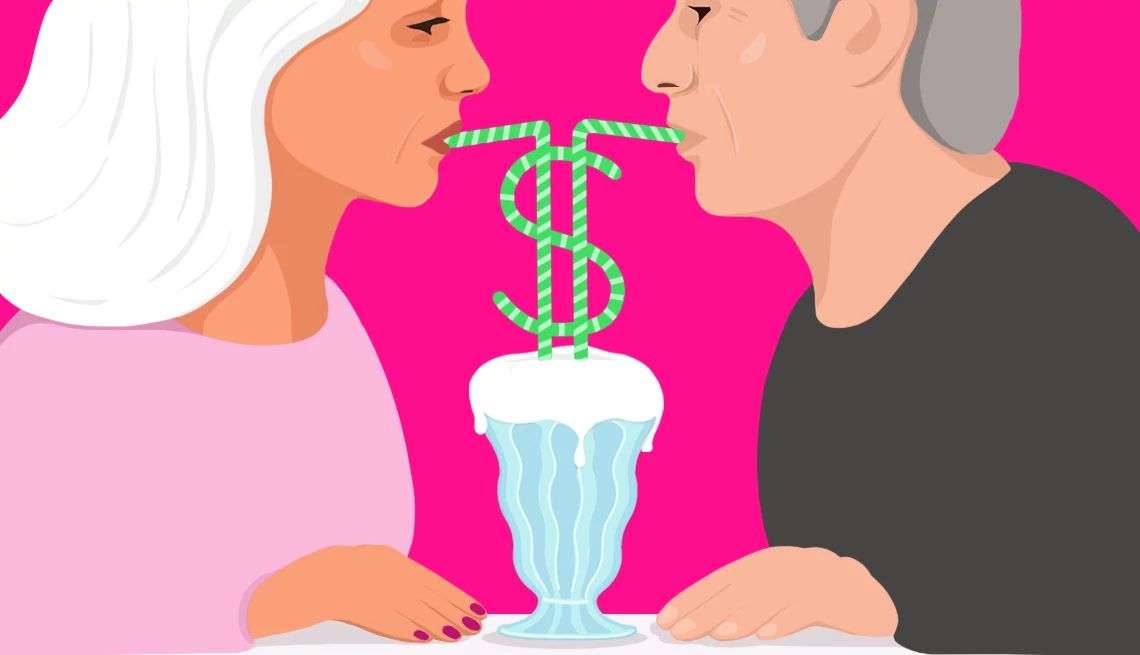AARP Hearing Center


In your 20s, you and the person you were dating were likely living paycheck to paycheck and happily grabbing slices of pizza or burgers when you went on a date. But dating in your 50s and beyond is a whole different ball game. “There's a big divide in income by the time individuals reach 50,” says Amy Morin, a psychotherapist and the author of 13 Things Mentally Strong Couples Don't Do.
Some people have their retirement savings all dialed in, she says, while others haven’t saved anything; some are helping out adult children financially, while others don’t have kids or many other financial responsibilities.
And when it comes to discretionary income, everyone is unique in how (and how often) they like to spend it, whether it’s spoiling their pets, dining out several times a week or taking trips across the globe.
Add to that, there isn’t a whole lot of wiggle room for change. “People are also fairly set in their ways when it comes to money at this age,” says Morin. A saver, for instance, isn't likely to turn into a big spender any time soon and vice versa.
Here are five tips for talking about finances when dating as an older adult.
Get the “Who is going to pay for this?” conversation out of the way
Traditionally, the guy would pay for the first date, but that isn’t necessarily the case in modern society. Things change with each generation, and today’s 50-year-olds may very well be of the “Let’s split the bill mentality,” says Stan Tatkin, PhD, a marriage and family therapist. And while some women may be impressed if a man pays, he stresses that other women who have worked hard to establish themselves in life might not want a guy swooping in and picking up the bill at this point in their lives.
First date? Here's what to do. If it’s a new relationship or a first date especially, the best way to get around this is to be upfront and see what the other person is most comfortable with. When the bill comes, ask, “What do you think we should do?” or “How would you like to do this?” suggests Tatkin, who is also the author of Wired for Love.
It can also be a good opportunity to get a preview of their level of how generous they are, as well as their economic status, says Holly Davis, a family law attorney and founding partner of the firm Kirker Davis. “That's a good opportunity to learn about how someone approaches equity in a relationship, by looking at what those 'who pays the check' negotiations look like.”
And if they say, “I’ll get this and maybe you can get it next time,” that’s a good bet they want there to be a next time, says Davis.
If you don’t want to get into it and you’re dating someone casually, then just say you want to split the check, says Davis.

































































More From AARP
How to Break a Sex Drought as an Older Adult
A woman asks how to approach a friend to help her break a sex drought and what she should do to prepare.
13 Free or Low-Cost Ways You Can Cope With Loneliness
Here are 13 things that could help you meet new people without breaking the bank
Looking for Love? Here Are 17 Dating Apps and Websites for Over-50 Singles
Use our guide for getting started with the most popular digital dating options out there